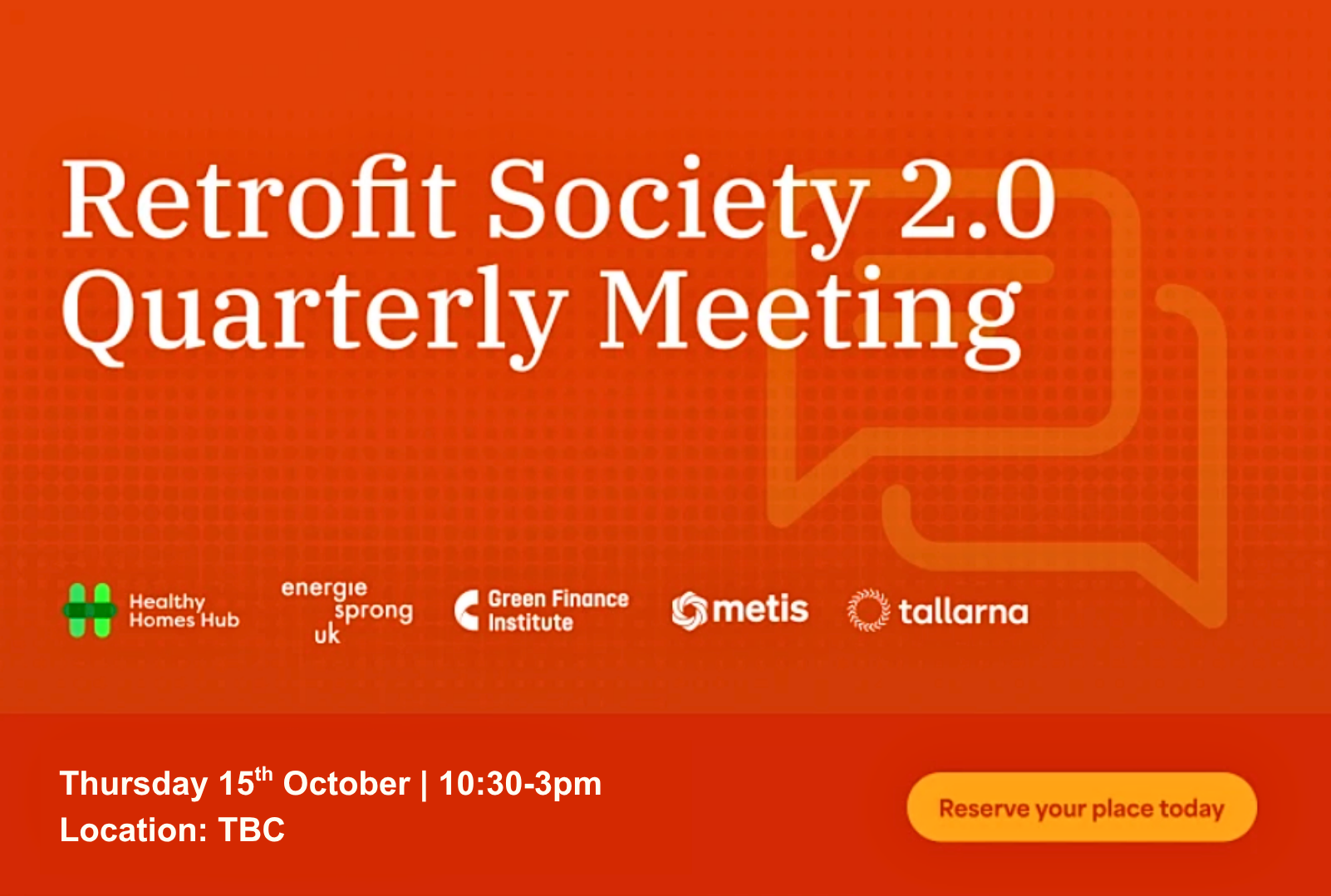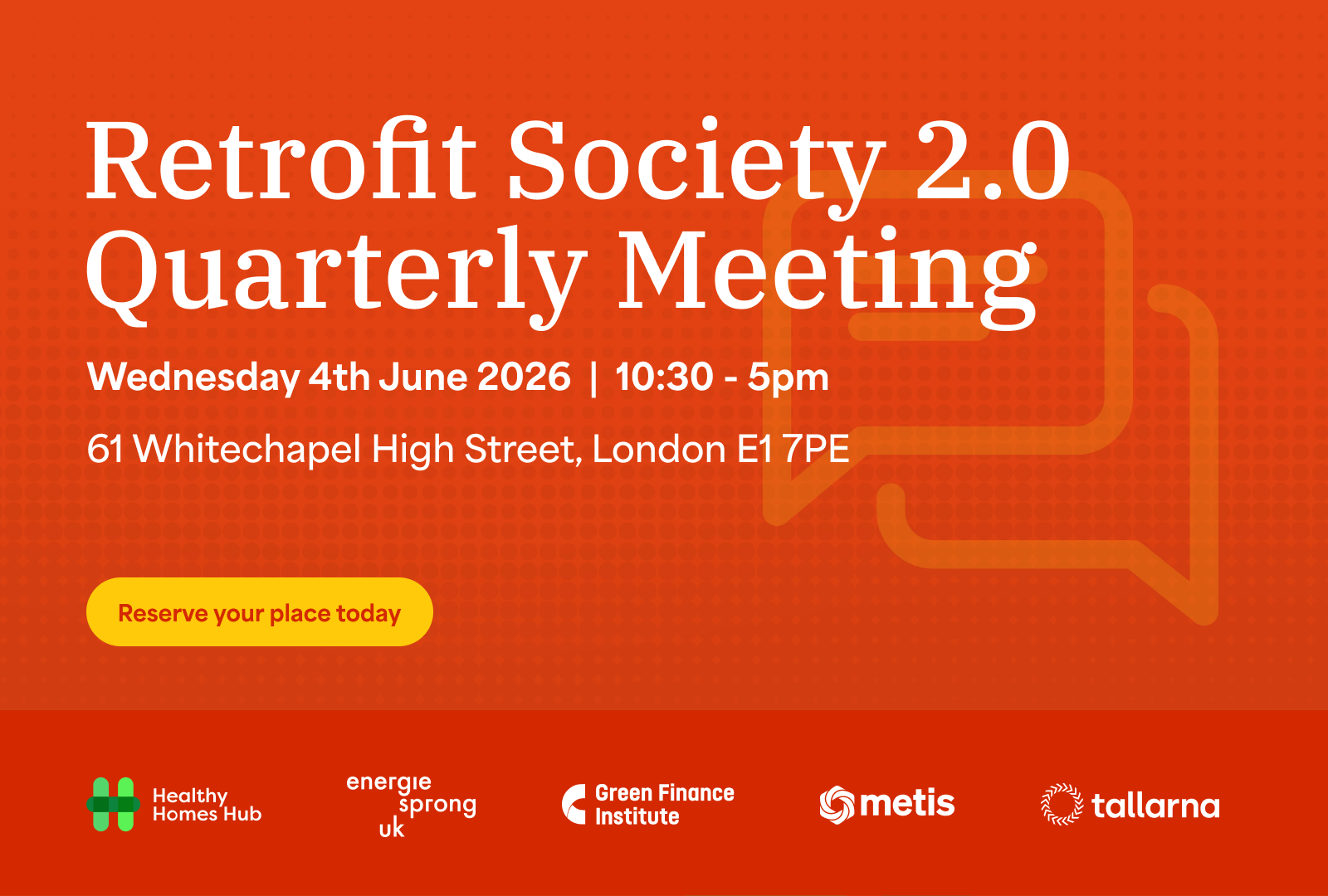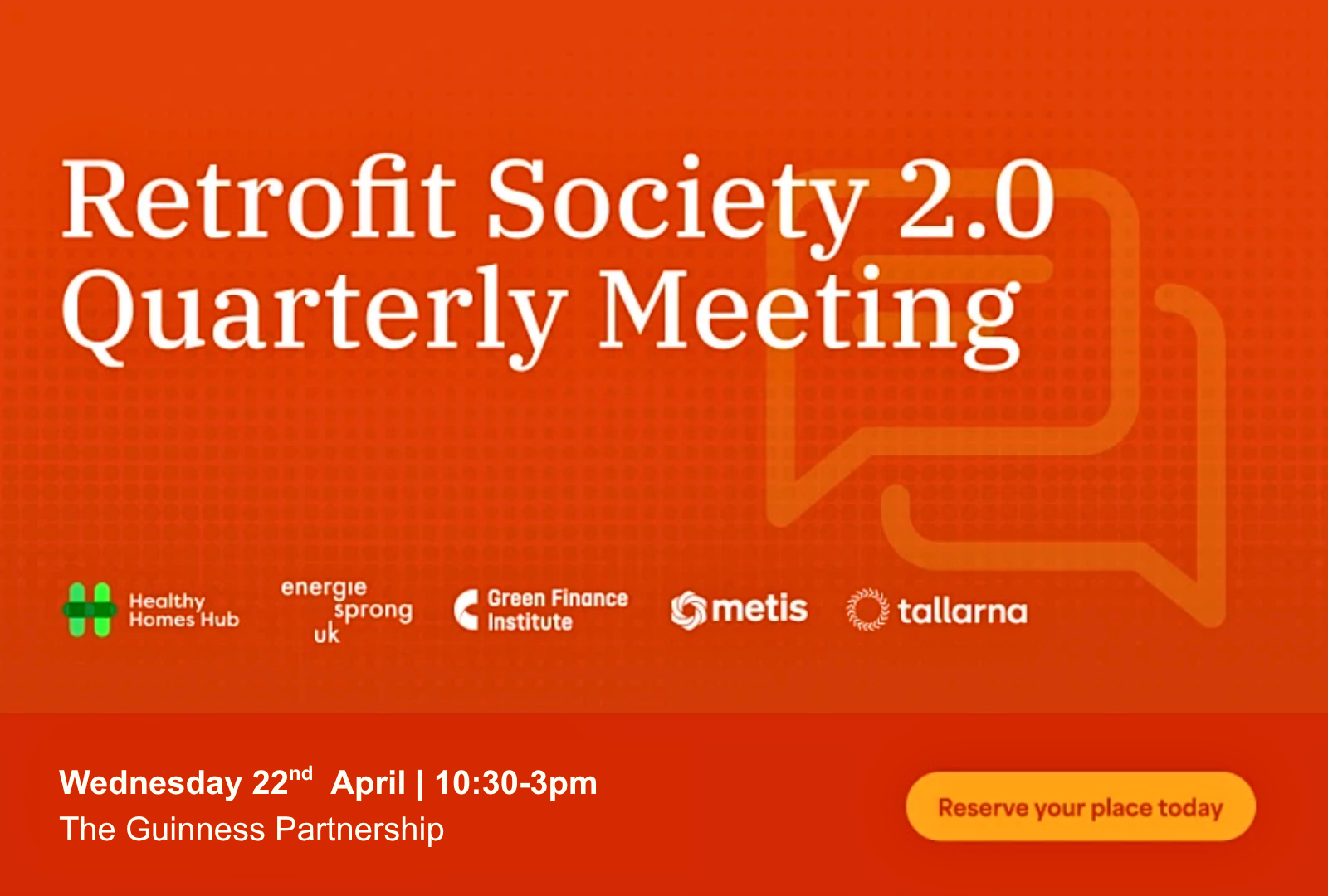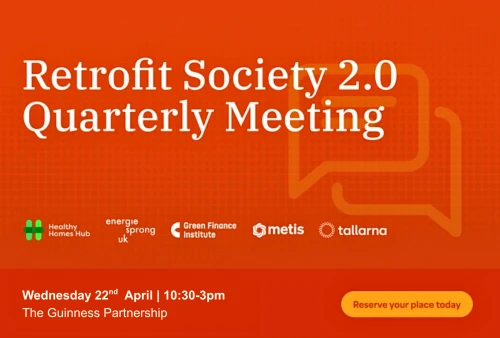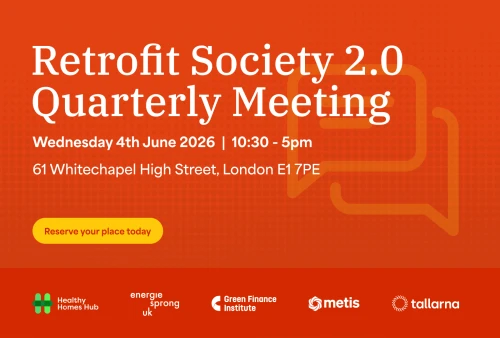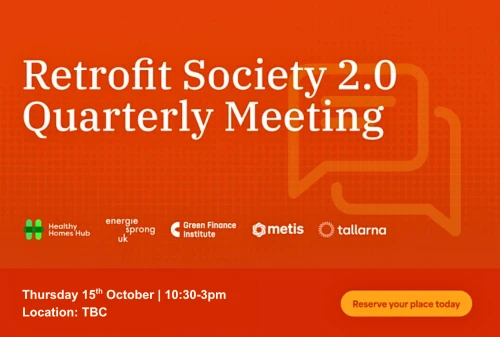Retrofit Credits: A New Approach for Housing Upgrades
08/10/2024

Retrofit Credits is a carbon credits scheme that unlocks additional funding into the housing sector by verifying the emission reductions and social value of your retrofit projects.
In the ever-growing effort to address climate change and reduce carbon emissions, social housing has become a key battleground. Across the UK, millions of homes need upgrading to improve energy efficiency, reduce environmental impact, and enhance residents' quality of life. For housing associations, this transformation can be costly and complex. Enter Retrofit Credits—a pioneering carbon credits scheme designed to make retrofitting more financially viable while placing a spotlight on community benefits.
Developed by HACT and PNZ Carbon, Retrofit Credits represent a new funding approach that enables housing providers to leverage the carbon savings of their retrofit projects for additional funding. Not only does this scheme unlock fresh opportunities to finance retrofits, but it also prioritises social value, creating meaningful positive impacts on residents' lives while offering local organisations a way to invest directly in their community's environmental future. Let’s take a closer look at how Retrofit Credits work and what makes this programme unique in the world of carbon credits.
How Retrofit Credits Work
Retrofit Credits is a carbon credits scheme specifically tailored for the social housing sector in the UK. But what does this really mean? Essentially, each Retrofit Credit represents a measurable reduction in carbon emissions that results from energy efficiency improvements made to social housing properties—think of upgraded insulation, double-glazed windows, and efficient heating systems.
This programme follows an internationally recognised certification methodology known as the Verified Carbon Standard (VCS). With this rigorous standard, Retrofit Credits verify that the carbon reductions achieved are credible and quantifiable, ensuring confidence in the programme for both housing providers and investors. The carbon savings are then converted into carbon credits that can be sold to local organisations wishing to offset their own emissions.
But Retrofit Credits doesn’t just stop at carbon emissions. It goes a step further by incorporating a social value element, using the UK Social Value Bank—the largest bank of methodologically consistent social value metrics in the world. This means that each retrofit project not only improves energy efficiency but also measures the positive effects on residents’ lives, such as improvements in health, comfort, and overall well-being. This focus on social value makes Retrofit Credits more than just an environmental initiative; it’s a community transformation tool.
Bridging the Funding Gap in Retrofitting
Financing energy efficiency upgrades can be challenging, especially for social landlords who often work with limited budgets. Traditional funding streams may fall short of covering the costs involved in upgrading older properties to modern standards. Retrofit Credits step in to bridge this funding gap. By verifying emission reductions and creating certified carbon credits, housing providers can secure additional revenue through the sale of these credits to interested buyers—typically organisations with a desire to offset their emissions and support local environmental efforts.
The concept is simple yet effective: Local companies, councils, or even larger corporations can purchase these credits to offset their own carbon footprints. In doing so, they invest directly in local communities, helping to fund retrofit initiatives that benefit the environment as well as local residents. The virtuous cycle created by this funding model ensures that money stays within the community and supports tangible environmental and social outcomes.
Why Social Value Matters
One of the standout features of Retrofit Credits is the incorporation of social value into its framework. Retrofitting a property doesn’t just result in lower emissions—it fundamentally changes the living conditions for residents. It’s about making homes warmer, healthier, and more comfortable. The social value created through these retrofits can be transformational, contributing to improved physical and mental well-being, reduced energy bills, and even greater social cohesion.
Using the UK Social Value Bank, Retrofit Credits can measure this often intangible impact. For instance, by improving insulation, residents are less likely to suffer from damp and cold-related health issues, which can lead to fewer doctor visits and better overall well-being. Similarly, reducing energy bills means that households have more disposable income, potentially reducing financial stress and contributing to better quality of life.
By monetising these social benefits alongside carbon reductions, Retrofit Credits bring an ethical framework to the carbon offset market—one that considers not just environmental outcomes but the holistic, real-world impacts on individuals and communities. This aspect helps differentiate Retrofit Credits from other carbon trading schemes that may focus purely on environmental metrics, ignoring the lived experiences of those affected.
A Collaboration Built on Expertise
Retrofit Credits is the result of a strategic partnership between two industry leaders: HACT and PNZ Carbon. HACT has been transforming the UK housing sector for over 60 years, providing insight and innovation that helps housing associations to thrive. Their deep understanding of the social housing sector, combined with PNZ Carbon’s decade-long expertise in carbon markets, has led to the creation of a programme that balances rigour with social impact.
PNZ Carbon brings credibility to the carbon credits market by ensuring that all emission reductions are verified through established standards, while HACT ensures that these projects deliver real social value to residents. Together, they’ve created a programme that’s robust, ethical, and community-focused—one that offers housing providers a genuine opportunity to maximise the impact of their retrofit projects.
A Local Approach to Carbon Offsetting
In contrast to traditional carbon offsetting schemes, which often involve overseas projects, Retrofit Credits offer a hyper-local approach to carbon reduction. This locality matters because it means that organisations purchasing the credits are investing directly in their own communities. A local council, for instance, can use Retrofit Credits to meet their net-zero targets while ensuring that the benefits of their investment are felt directly by their constituents.
The programme thus has the potential to foster a sense of collective responsibility and pride in reducing emissions and improving living standards. Residents feel the benefits in their everyday lives, while local businesses and councils can see the impact of their investments—not on a faraway forest, but in the homes of people they share their community with.
Get Involved with Retrofit Credits
Retrofit Credits is a timely and innovative solution to some of the most pressing challenges faced by the social housing sector today—climate change, funding shortages, and the need to improve the quality of life for residents. By combining carbon reductions with verified social value, the scheme offers a compelling opportunity for social landlords, local councils, and businesses alike to contribute to a greener, fairer future.
Whether you are a social housing provider looking to fund your next retrofit project or an organisation seeking a meaningful way to offset carbon emissions, Retrofit Credits offers a practical, ethical, and impactful solution.
To find out how you can get involved with the programme and for any questions about Retrofit Credits, please contact:
Antoine Pellet
Head of Retrofit Credits
antoine.pellet@hact.org.uk
Become a member to read this article and more!
Social Housing Providers, Local Government, and Academics can sign up for free to access this article and more.
Already registered? Login Here
Related Content
What Are the Benefits of Being a Member of the Healthy Homes Hub?
Industry Recognition and Networking:
Connect with a thriving network of over 350 housing organisations, including decision-makers, innovators, and leaders. Build partnerships that enhance your professional growth and create lasting business opportunities.
Showcase Your Expertise:
Demonstrate your impact by participating in exclusive case studies, webinars, and events. Highlight your contributions to creating healthier, sustainable homes, reaching a broad audience across the sector.
Influence Policy and Advocacy:
Be part of shaping housing policy through direct engagement with policymakers and advocacy efforts. Stay at the forefront of discussions driving meaningful change in the housing sector.
Access to Market Insights:
Gain access to Healthy Homes Hub’s regular newsletters, expert analysis, and resources. Stay informed about trends, regulations, and innovative practices that affect housing professionals.
Specialised Events and Workshops:
Take part in events like the Immersive Study Tours, offering hands-on learning and networking opportunities. Visit groundbreaking projects and facilities to explore real-world solutions for healthier and more sustainable homes.
Exclusive Tools and Resources:
Only members can upgrade to Housing Sage, a cutting-edge AI assistant tailored to social housing professionals. Benefit from personalised insights, regulatory guidance, and innovative ideas to enhance your operations.
Collaboration Opportunities:
Contribute to Healthy Homes Hub’s mission by sharing best practices, participating in action learning programmes like the Retrofit Society, or co-developing solutions with academic and industry leaders.

